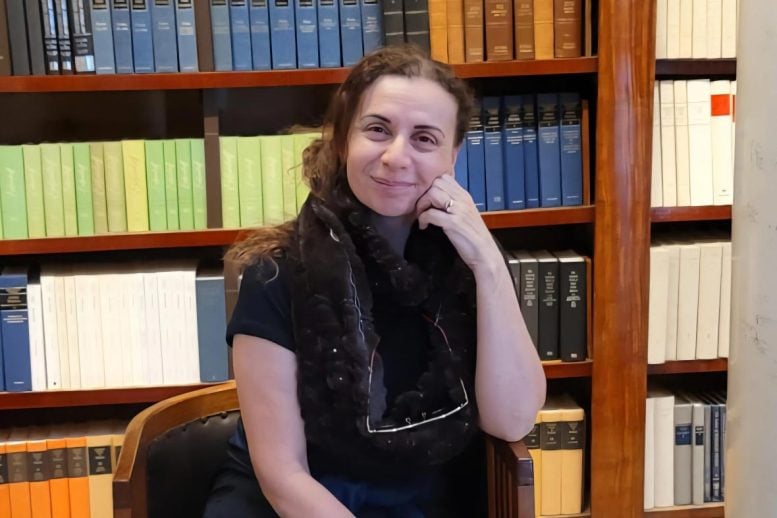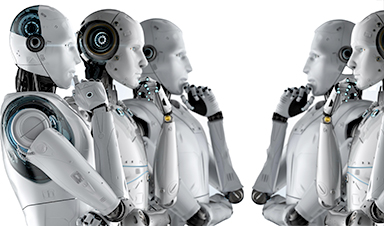Opaque AI systems risk undermining human rights and dignity. Global cooperation is needed to ensure protection.
The rise of artificial intelligence (AI) has changed how people interact, but it also poses a global risk to human dignity, according to new research from Charles Darwin University (CDU).
Lead author Dr. Maria Randazzo, from CDU's School of Law, explained that AI is rapidly reshaping Western legal and ethical systems, yet this transformation is eroding democratic principles and reinforcing existing social inequalities.
She noted that current regulatory frameworks often overlook basic human rights and freedoms, including privacy, protection from discrimination, individual autonomy, and intellectual property. This shortfall is largely due to the opaque nature of many algorithmic models, which makes their operations difficult to trace.
The black box problem
Dr. Randazzo described this lack of transparency as the "black box problem," noting that the decisions produced by deep-learning and machine-learning systems cannot be traced by humans. This opacity makes it challenging for individuals to understand whether and how an AI model has infringed on their rights or dignity, and it prevents them from effectively pursuing justice when such violations occur.

"This is a very significant issue that is only going to get worse without adequate regulation," Dr. Randazzo said.
"AI is not intelligent in any human sense at all. It is a triumph in engineering, not in cognitive behaviour."
"It has no clue what it's doing or why – there's no thought process as a human would understand it, just pattern recognition stripped of embodiment, memory, empathy, or wisdom."
Global approaches to AI governance
Currently, the world's three dominant digital powers – the United States, China, and the European Union – are taking markedly different approaches to AI, leaning on market-centric, state-centric, and human-centric models, respectively.
Dr. Randazzo said the EU's human-centric approach is the preferred path to protect human dignity, but without a global commitment to this goal, even that approach falls short.
"Globally, if we don't anchor AI development to what makes us human – our capacity to choose, to feel, to reason with care, to empathy and compassion – we risk creating systems that devalue and flatten humanity into data points, rather than improve the human condition," she said.
"Humankind must not be treated as a means to an end."
Reference: "Human dignity in the age of Artificial Intelligence: an overview of legal issues and regulatory regimes" by Maria Salvatrice Randazzo and Guzyal Hill, 23 April 2025, Australian Journal of Human Rights.
DOI: 10.1080/1323238X.2025.2483822
The paper is the first in a trilogy Dr. Randazzo will produce on the topic.
News
New Toothpaste Stops Gum Disease Without Harming Healthy Bacteria
Researchers have developed a targeted approach to combat periodontitis without disrupting the natural balance of the oral microbiome. The innovation could reshape how gum disease is treated while preserving beneficial bacteria. The human mouth [...]
Plastic Without End: Are We Polluting the Planet for Eternity?
The Kunming Montreal Global Biodiversity Framework calls for the elimination of plastic pollution by 2030. If that goal has been clearly set, why have meaningful measures that create real change still not been implemented? [...]
Scientists Rewire Natural Killer Cells To Attack Cancer Faster and Harder
Researchers tested new CAR designs in NK-92 cells and found the modified cells killed tumor cells more effectively, showing stronger anti-cancer activity. Researchers at the Ribeirão Preto Blood Center and the Center for Cell-Based [...]
New “Cellular” Target Could Transform How We Treat Alzheimer’s Disease
A new study from researchers highlights an unexpected player in Alzheimer’s disease: aging astrocytes. Senescent astrocytes have been identified as a major contributor to Alzheimer’s progression. The cells lose protective functions and fuel inflammation, particularly in [...]
Treating a Common Dental Infection… Effects That Extend Far Beyond the Mouth
Successful root canal treatment may help lower inflammation associated with heart disease and improve blood sugar and cholesterol levels. Treating an infected tooth with a successful root canal procedure may do more than relieve [...]
Microplastics found in prostate tumors in small study
In a new study, researchers found microplastics deep inside prostate cancer tumors, raising more questions about the role the ubiquitous pollutants play in public health. The findings — which come from a small study of 10 [...]
All blue-eyed people have this one thing in common
All Blue-Eyed People Have This One Thing In Common Blue Eyes Aren’t Random—Research Traces Them Back to One Prehistoric Human It sounds like a myth at first — something you’d hear in a folklore [...]
Scientists reveal how exercise protects the brain from Alzheimer’s
Researchers at UC San Francisco have identified a biological process that may explain why exercise sharpens thinking and memory. Their findings suggest that physical activity strengthens the brain's built in defense system, helping protect [...]
NanoMedical Brain/Cloud Interface – Explorations and Implications. A new book from Frank Boehm
New book from Frank Boehm, NanoappsMedical Inc Founder: This book explores the future hypothetical possibility that the cerebral cortex of the human brain might be seamlessly, safely, and securely connected with the Cloud via [...]
Deadly Pancreatic Cancer Found To “Wire Itself” Into the Body’s Nerves
A newly discovered link between pancreatic cancer and neural signaling reveals a promising drug target that slows tumor growth by blocking glutamate uptake. Pancreatic cancer is among the most deadly cancers, and scientists are [...]
This Simple Brain Exercise May Protect Against Dementia for 20 Years
A long-running study following thousands of older adults suggests that a relatively brief period of targeted brain training may have effects that last decades. Starting in the late 1990s, close to 3,000 older adults [...]
Scientists Crack a 50-Year Tissue Mystery With Major Cancer Implications
Researchers have resolved a 50-year-old scientific mystery by identifying the molecular mechanism that allows tissues to regenerate after severe damage. The discovery could help guide future treatments aimed at reducing the risk of cancer [...]
This New Blood Test Can Detect Cancer Before Tumors Appear
A new CRISPR-powered light sensor can detect the faintest whispers of cancer in a single drop of blood. Scientists have created an advanced light-based sensor capable of identifying extremely small amounts of cancer biomarkers [...]
Blindness Breakthrough? This Snail Regrows Eyes in 30 Days
A snail that regrows its eyes may hold the genetic clues to restoring human sight. Human eyes are intricate organs that cannot regrow once damaged. Surprisingly, they share key structural features with the eyes [...]
This Is Why the Same Virus Hits People So Differently
Scientists have mapped how genetics and life experiences leave lasting epigenetic marks on immune cells. The discovery helps explain why people respond so differently to the same infections and could lead to more personalized [...]
Rejuvenating neurons restores learning and memory in mice
EPFL scientists report that briefly switching on three “reprogramming” genes in a small set of memory-trace neurons restored memory in aged mice and in mouse models of Alzheimer’s disease to level of healthy young [...]





















